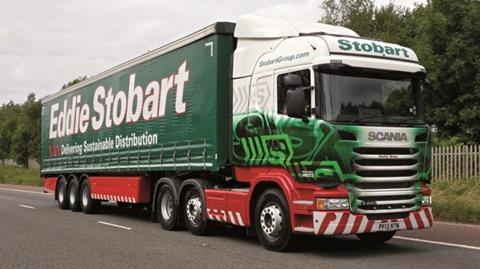
The lack of a hard shoulder on the M25 contributed to the death of two women who were killed when an Eddie Stobart lorry driver crashed his truck into a broken down car parked in the left hand lane, a court has heard.
Chelmsford Crown Court heard that Sevim Uston, 49, and Ayse Uston, 68, died after being hit by the articulated lorry as they took refuge behind the motorway barrier between junction 27 and 26 near Waltham Abbey, after the Audi car they were travelling in had broken down.
Murat Uston, the driver of the car said he was driving his mother, grandmother and ten year old sister home late at night on March 19 2018 when the car’s tyre failed. He pulled over, applied the hazard lights and parked in the left hand lane, since there was no hard shoulder.
The family got out and stood four metres back from the car behind the barrier.
Seconds later the Eddie Stobart lorry collided with the back of the car, smashed through the barriers and hit the family.
The crash claimed the lives of both Sevim and Ayse and left the young girl with serious and long-term injuries.
The driver of the lorry, Krzysztof Zarebski, 34, of Gordon Street, Coventry, was charged with two counts of death by careless driving.
The court heard that Zarebski, who had worked as an agency driver for three years in England, was working his third day for Eddie Stobart when the accident happened and was driving the refrigerated truck for the first time.
Read more
- “Smart motorways need better refuge areas and clearer signage,” insists RHA
- Lawyers call for ban on Smart motorways after spate of fatal accidents
- Better educate drivers on how to use smart motorways and enforce penalties more strictly, says logistics industry
He told police after the crash that he had put the vehicle into cruise control at 56mph, adding: “It's my fault but no hard shoulder”.
Prosecuting barrister Carolyn Gardiner told the court that the lorry did not reduce its speed or swerve to avoid the collision and had a clear view of the broken down vehicle.
Barrister Benjamin Waidhofer, mitigating on behalf of Zarebski, referred to the controversy surrounding the absence of hard shoulders on some areas of smart motorways.
He added: “If there had been proper provision for refuge areas, the accident wouldn't have happened."
He also pointed out that the overhead sign had no reference to there being a broken down vehicle in the left hand lane.
In his summing up, Judge Charles Gratwicke said: “I accept of course that if there had been a hard shoulder or a refuge into which Mr Uston could have steered his vehicle that collision would not have occurred.
"However it's not for this court to make any judgement or observations of smart motorways or the strength of the barriers or give blame.”
He said that footage showed that Zarebski had four seconds to react and had failed to do so due to his “momentary inattention".
The judge sentenced Zarebski to four months in prison suspended for 12 months and ordered him to undertake 200 hours of unpaid work. He was disqualified from driving and ordered to pay the victim surcharge.













